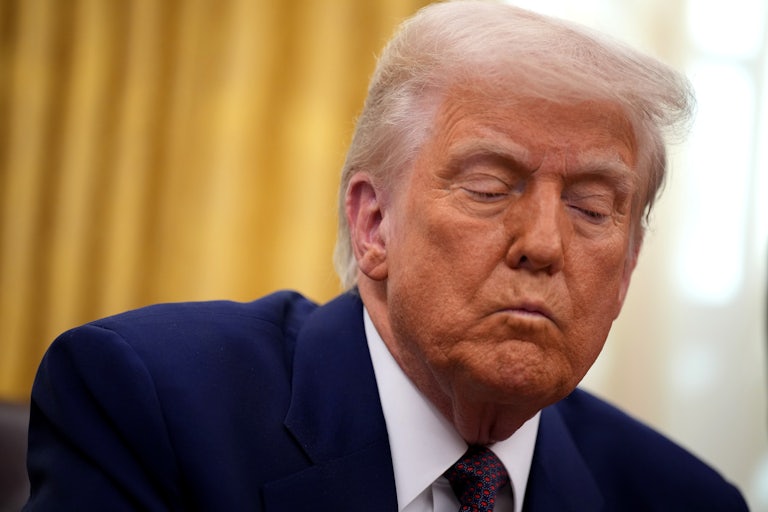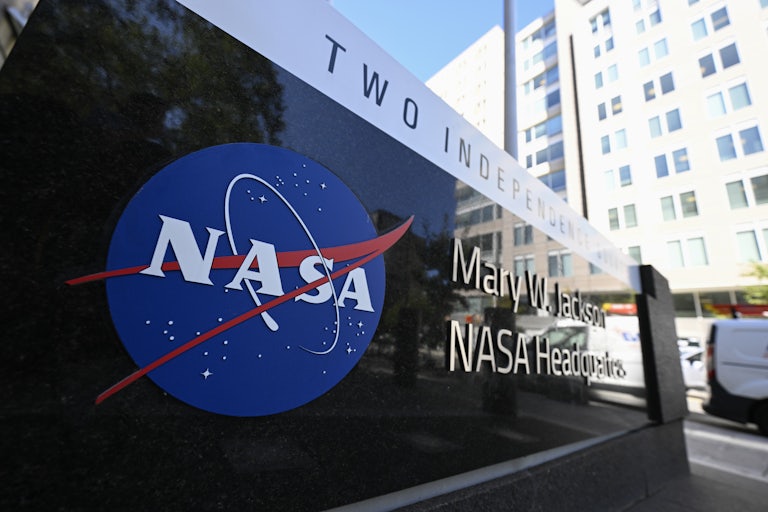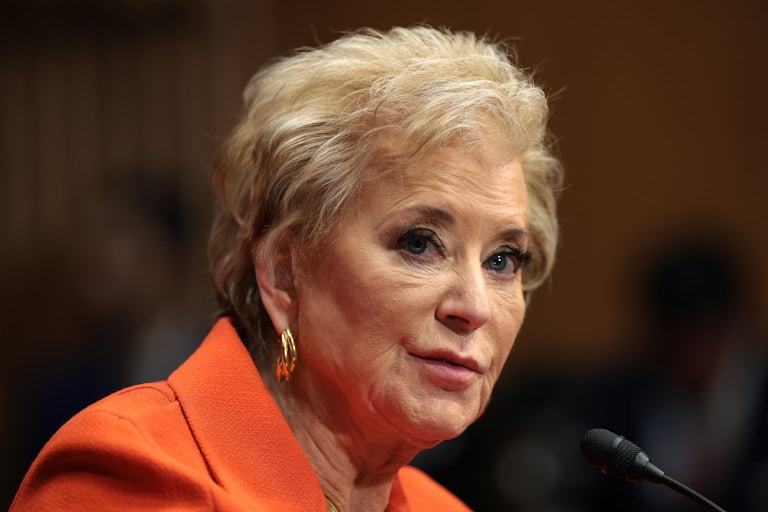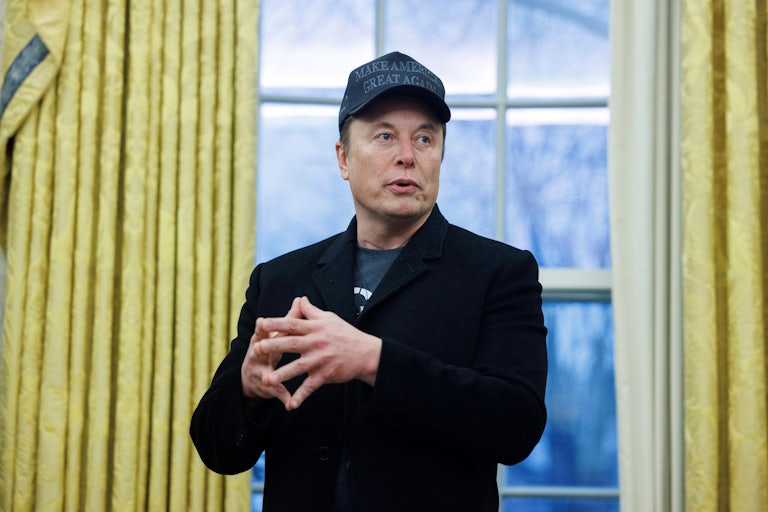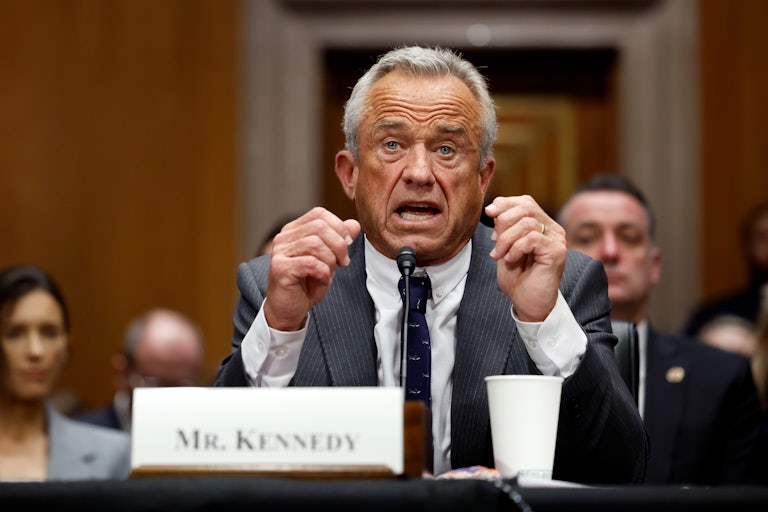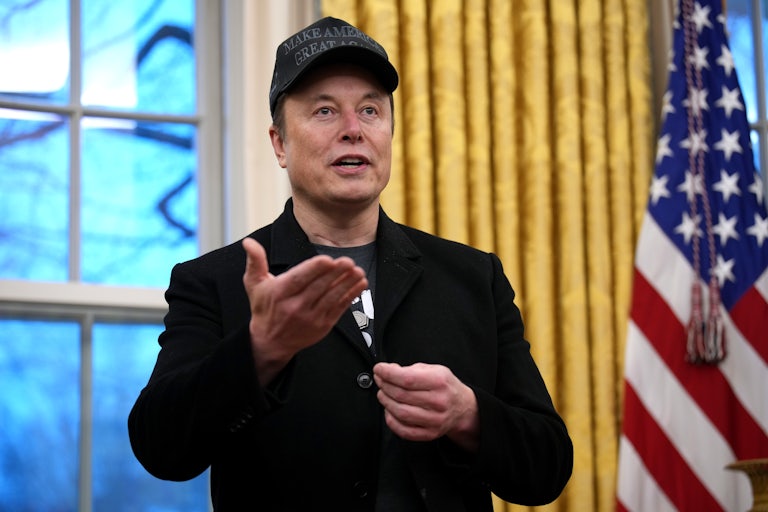Trump Kicks Off Global Chaos With New Tariff Announcement
Donald Trump announced he would determine tariffs on a country-by-country basis.
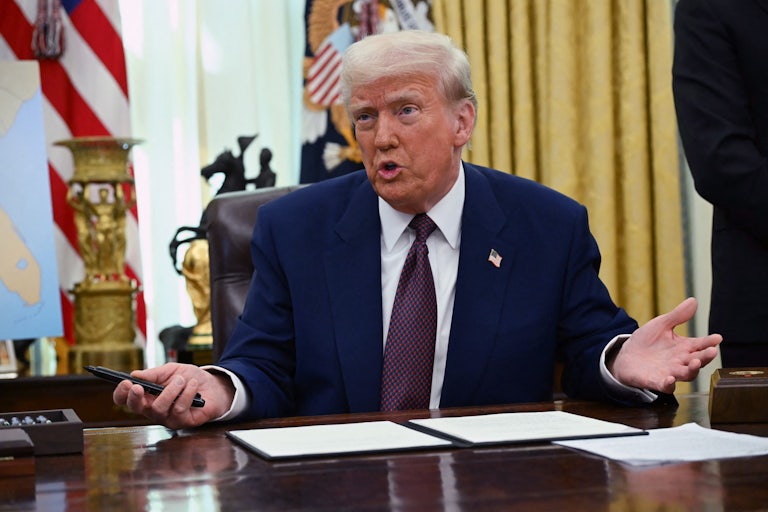
Donald Trump on Thursday announced his intention to impose “reciprocal tariffs” on America’s trading partners.
Trump instructed his trade advisers and federal agencies to examine “reciprocal tariffs” on a “country-by-country” basis. The tariffs would begin with nations with which the U.S. determines it has the highest trade deficit, according to a senior White House official who spoke with the Financial Times. Trump’s memo likened the U.S. trade deficit to an issue of national security.
“India traditionally is just about the highest country, tariffs,” Trump said in a taped playback that the White House did not allow to be broadcast live from the Oval Office. “They’re at the top of the pack.”
Trump also highlighted what he perceived to be poor trade dynamics with the European Union and Canada, suggesting once again that America’s northern neighbor could become the country’s “fifty-first state” while referring to its outgoing leader as “Governor Trudeau.”
“Whatever they’re charging us, we’ll charge them,” the president said, bringing up Harley Davidson’s manufacturing issues with the country. Trump also promised that “prices will stay the same, go down,” or “go up short-term” as a result of the tariffs, that the nation will see an influx of jobs, and that “farmers will be helped very much.”
“Nobody really knows what will happen,” Trump said.
Trump’s unconfirmed Commerce Secretary Howard Lutnick insisted that if “they drop their tariffs, prices will go down,” suggesting that nations around the world would drop their tariffs in order to aid American consumers. “It’s a two-way street,” he said.
White House officials said the administration would use a multipronged legal approach to implement the tariffs, in part pointing to Section 301 of the Trade Act and the International Emergency Economic Powers Act.
Trump initially announced the impending tariff proposal while aboard Air Force One on Sunday, promising that reciprocal tariffs would be coming for “every country” that imposes import duties on U.S. goods.
“Very simply it’s if they charge us, we charge them,” he said, according to NBC News.
The tariffs, which Trump first proposed would go into effect “immediately,” will actually not go into effect for several months. Instead, they have a possible start date of April 1, according to White House officials that spoke with CNBC.
The U.S. has a weighted average import tariff rate of 2 percent on industrial goods, an umbrella category that encompasses practically all consumer goods outside of food.
“Weighted average tariff rates give special consideration to the value of a country’s imports,” reported CNN. “That means that if one country’s exports are subject to tariffs in another country and they constitute a large portion of the country’s overall imports, their weighted average tariff rate will be higher compared to another country whose exports accounts for a small share.”
EU leaders have already vowed to fight back against Trump’s sweeping tariff plan. Although economic advisers have brushed off Trump’s campaign promise as a blunt negotiating strategy, top U.S. allies in Europe have spent months composing a “Trump Task Force” to ready their respective countries for what they believe could boil into a painful trade war.
“I will never support the idea of fighting allies,” Danish Prime Minister Mette Frederiksen told reporters in Brussels on Monday. “But of course, if the U.S. puts tough tariffs on Europe, we need a collective and robust response.”
Trump’s previous tariff proposals are predicted to affect just about every product under the sun, from ground beef and bananas to liquor and gas. On Monday, Trump reinstated his 2018 tariff on steel and aluminum, raising tariffs for both to 25 percent. The new regulation is slated to take effect March 12. Once it does, production costs for America’s automakers are likely to jump, as will costs for the country’s construction industry, which is already struggling to meet the demands of a historic nationwide housing crisis.
Trump has leaned into tariffs as a key component of affording an extension to his 2017 tax plan, which overwhelmingly benefits corporations and is projected to add as much as $15 trillion to the national deficit. But experts believe that a trade war would be to the overwhelming detriment of American consumers and its allies abroad—and that the self-inflicted pain could only serve to benefit U.S. adversaries around the globe.
The EU’s top diplomat Kaja Kallas warned Monday that if the U.S. and the European Union were to enter into a trade war, then “the one laughing on the side is China.”
